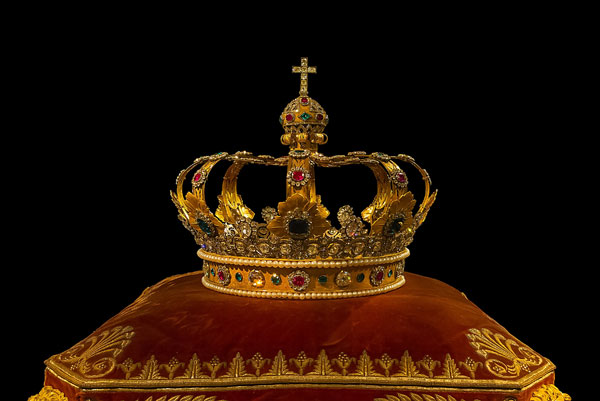King Charles' coronation sparks controversy amid growing anti-monarchist sentiments

[A European royal crown. Photo Credit to PxHere]
The coronation of King Charles has sparked controversy, as anti-monarchist sentiment grows in the United Kingdom.
On March 9, 2023, the British monarchy held a coronation ceremony in Westminster Abbey to crown King Charles, the new king of the United Kingdom and other Commonwealth nations.
The ceremony involved more than 2,200 representatives from 203 countries, as well as leaders of the Anglican Church.
The news of King Charles' coronation was not welcomed by everyone.
Anti-monarchist groups, such as the Republic, displayed strong opposition as they protested against the coronation.
On the day of the coronation, they picketed on the streets of London with signs reading, "Not my King."
"The coronation is a pointless vanity parade," said Graham Smith, CEO of Republic.
He further denounced King Charles as someone "who would be willing to take a job like that [is] without any accountability, who is happy to take a job where he doesn't have to pay tax [for], and that carries all sorts of exemptions and privileges."
Open expressions of resentment towards the British monarchy have likely been fueled by the public’s disfavor of excessive spending for the coronation in times of economic recession.
Although the financial costs were significantly slimmed down from the coronation of Queen Elizabeth II, the coronation of King Charles still involved burdensome spending.
Some estimates go so far as to suggest that the ceremony cost the United Kingdom 125 million dollars.
With the national economy suffering an extraordinarily high inflation rate of 8.9%, such costs are likely to have turned many towards the anti-monarchist sentiment against the British monarchy.
Another factor that also impacted the popularity of anti-monarchist movements in the United Kingdom was changing public perception on the significance of a constitutional monarchy.
Over the past decade, the approval rating of constitutional monarchy in the United Kingdom declined from 75% to 58%.
The contraction had been especially pungent among the nation's young adults from 18 to 24, with a decline from 64% to 32% among this demographic.
CEO Smith made a remark on the change in public perception on the British monarchy stating, "I think it's definitely shifting."
"People are quite happy to criticize Charles in a way they weren't willing to necessarily in public about the queen," he further added.
Regardless of the modern anti-monarchist popularity, the support for the British monarchy remains solid.
While the approval rating for the British monarchy declined over the last decade, it still remains at 58%, an above-half level that speaks of the Britain public's general support.
"[The British monarchs] [are] going to provide a head of state forever," said Craig Prescott, a constitutional law expert at Bangor University.
He further commented on the futility of anti-monarchist movements, saying that abolishment of the crown "isn't on the horizon of any political party."

- Hoseok (Chris) Ahn / Grade 11
- Asia Pacific International School

![THE HERALD STUDENT REPORTERS [US]](/assets/images/logo_student_us.png)
![THE HERALD STUDENT REPORTERS [Canada]](/assets/images/logo_student_ca.png)
